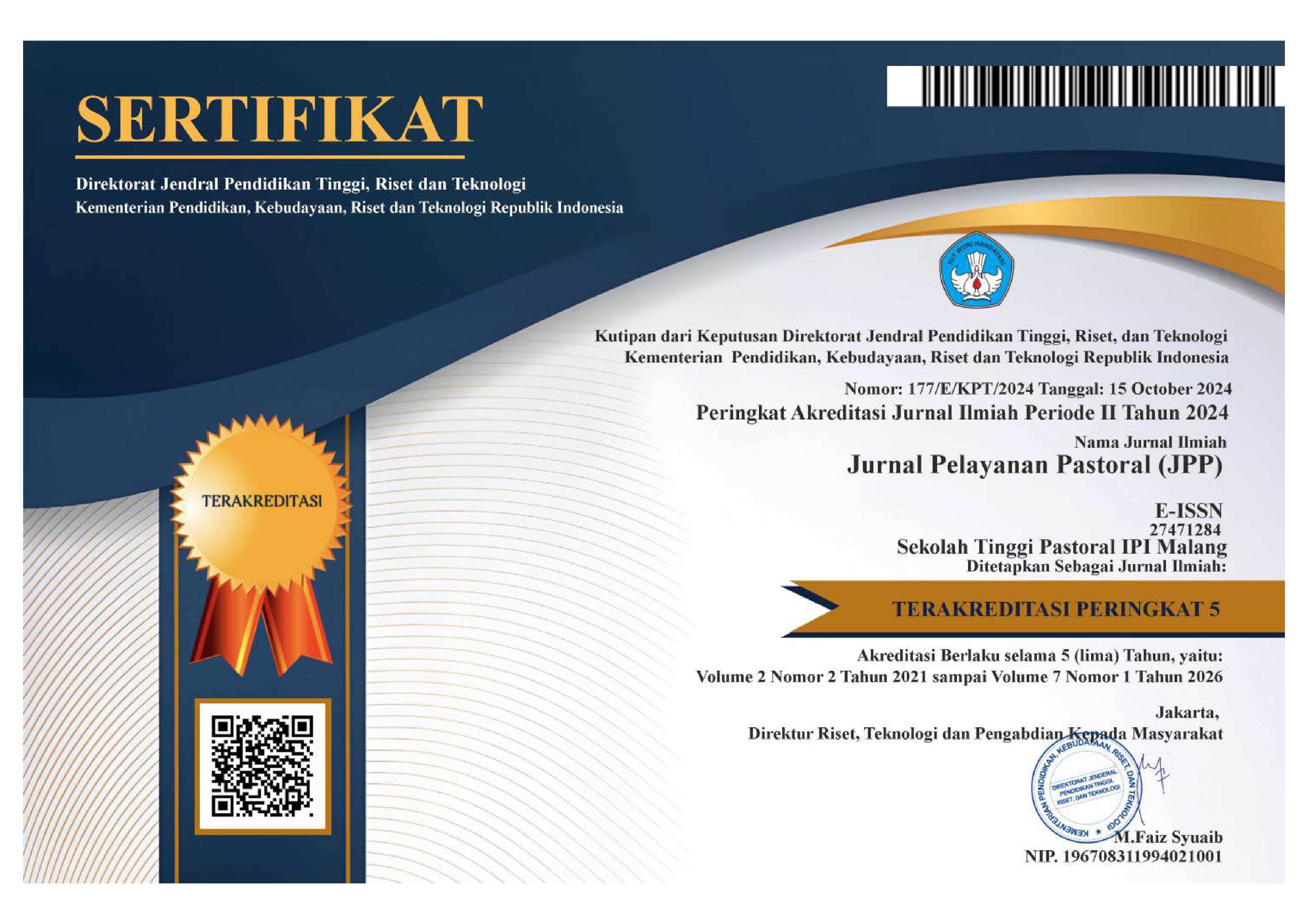PERAN AGAMA DALAM MENGHADAPI PERUBAHAN SOSIAL TERHADAP GENERASI MILENIAL
DOI:
https://doi.org/10.53544/jpp.v5i1.448Kata Kunci:
milennials, social change, the role of religionAbstrak
The millennial generation is a generation that easily adapts to all situations of the times, especially in social changes, this millennial generation is said to be a modern generation that easily adapts to new things. Social changes that occur today can also affect the millennial generation in all ways, both physical, social, cultural, and religious. So to keep the millennial generation carried away in the influence of positive social change, religion must also play a role in helping the millennial generation face existing social changes that may have a bad influence on them, it is hoped that religion can guide and maintain their faith, with the role of religion in their lives, the millennial generation can also bring a good influence for the development of the Church to adjust self with the social changes that are happening today. The purpose of this study is to determine the extent of the role of religion in directing the millennial generation in facing existing social changes, the method used in this study is quantitative method. Using data collection techniques from various related articles. The conclusion that can be drawn from this study is that religion plays an important role in helping the millennial generation face social changes that occur, religion helps the millennial generation in managing all aspects both social and religious, and with the role of religion to the millennial generation, the millennial generation has a good character and is able to develop its image and help the development of the Church.
Unduhan
Diterbitkan
Cara Mengutip
Terbitan
Bagian
Lisensi
Hak Cipta (c) 2024 Jurnal Pelayanan Pastoral

Artikel ini berlisensi Creative Commons Attribution-NonCommercial-NoDerivatives 4.0 International License.
Seluruh artikel yang diterbitkan dalam Jurnal Pelayanan Pastoral (JPP) dilisensikan di bawah Lisensi Creative Commons Attribution 4.0 International (CC BY 4.0).
Lisensi ini mengizinkan setiap orang untuk menyalin, mendistribusikan, menampilkan, dan membuat karya turunan dari artikel yang diterbitkan dalam jurnal ini, baik untuk tujuan komersial maupun non-komersial, dengan syarat mencantumkan pengakuan (atribusi) yang sesuai kepada penulis dan sumber aslinya.
Dengan menerbitkan naskahnya di JPP, penulis menyetujui bahwa:
- Artikel dapat digunakan kembali oleh pihak lain sesuai dengan ketentuan CC BY 4.0, dengan tetap mencantumkan atribusi yang benar.
- Penulis tetap memegang hak moral atas karya ilmiahnya.
- Jurnal Pelayanan Pastoral (JPP) tidak membatasi penyebaran artikel dalam repositori institusi, situs pribadi, atau media akademik lainnya.
Untuk informasi lebih lanjut, silakan kunjungi tautan resmi lisensi: https://creativecommons.org/licenses/by/4.0/
















